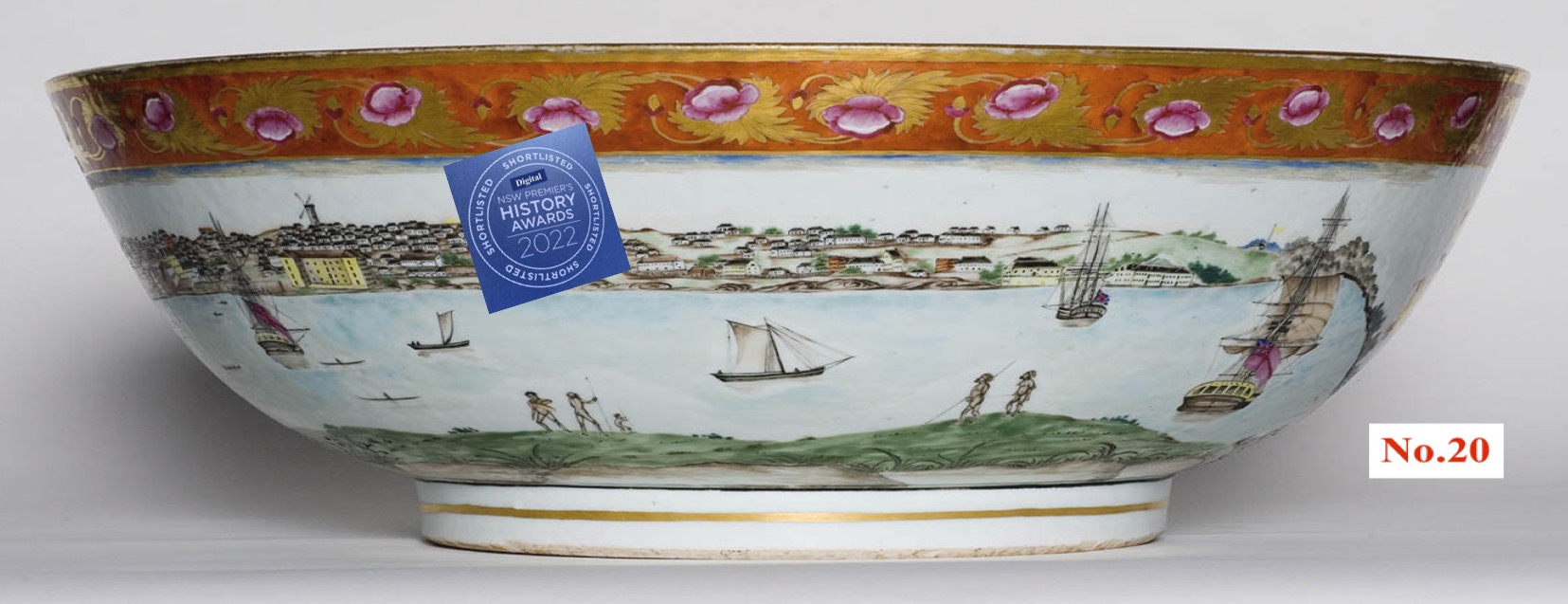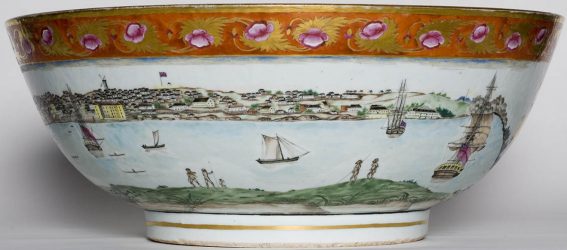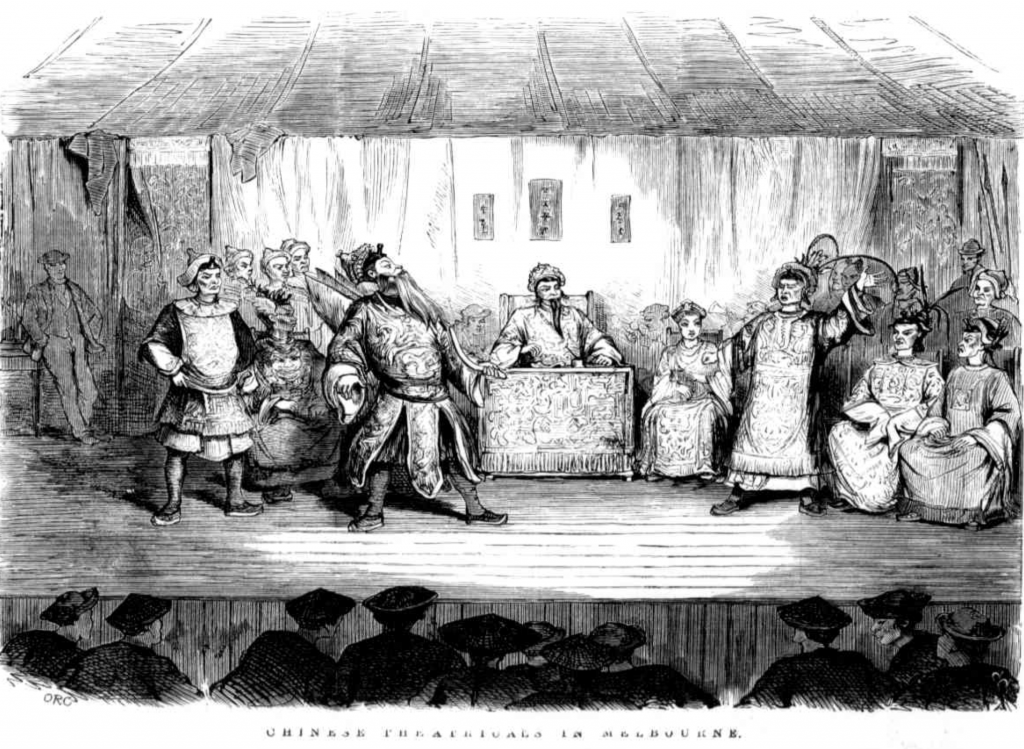
Chinese Opera is one of those cultural forms that are both deeply embedded in its culture and generally perceived by outsiders as a most exotic and relatively inaccessible representation of that culture. Yet for well over 50 years ‘Chinese Opera’ (Pear Garden or Great Drama in Chinese) was performed regularly in Australia to such an extent that English language scripts were handed out and Chinese Opera related sayings were part of Australian slang.[1] Subsequent ‘whitewashing’ of Australian history has erased the community memory of this entertainment as it has much else related to non-white Australian history.
Despite the long history of Chinese Opera in Australia there is very little evidence from Chinese people themselves and we are forced to rely on European accounts of these performances.[2] As with other European observations of Chinese activity in Australia these accounts are a mix of ignorance, earnest description, stereotyping, fascination and patronising tones. However, the nature of Chinese Opera, representing as it does a ‘high’ cultural form had the capacity to cut through some of the sense of cultural superiority that nearly always characterised 19th century European commentators. Thus, we have in these descriptions of Chinese Opera performance in Australia the closest these British/European/Christian/white (male) observers could come to admitting an ‘other’ culture might have something to offer or at least to acknowledging a near equality.[3] Even if often somewhat backhanded:
The decorations and dresses displayed a high degree of barbaric taste, for although we could recognise the uncouth ideas of a wrongly but highly civilised people, there was nothing that would strike the most fastidious taste as being senseless or vulgar.[4]
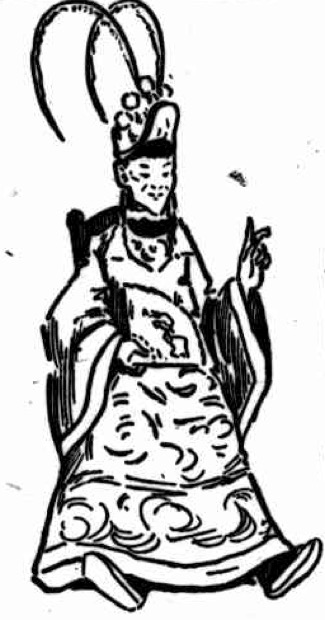
In 1872 a Melbourne observer contrasted the insight opera gave into the upper echelons of Chinese culture unfavorably with their impression of the local Chinatown:
A visit to the theatre in the Chinese quarter is exceedingly interesting as the performance altogether gives a higher idea of the manners and customs of the flowery land than a cursory glance at Little Bourke street.[5]
In Brisbane in 1894, it was the stage that amazed and the:
greatest [set] change was the raising of a mountain which a fleeing warrior and his wife had to cross. This was done by three tables and half-a-dozen chairs piled on each other and surmounted by an artificial bough fixed to the back of a chair.[6]
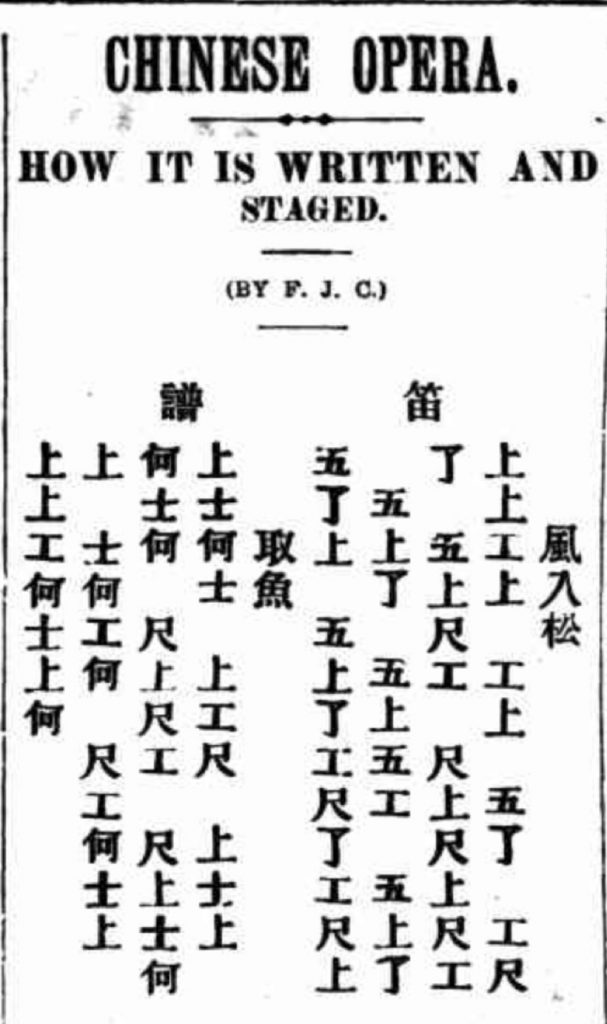
A Chinese language newspaper published in Sydney reported in 1898 that Europeans spectators where common and on at least one occasion appeared in the cast.[7] Moreover, a performance of “eight Western beauties” “dancing like swallows” appeared that same year.[8] While a generation before in the Victorian goldfields town of Ararat, Europeans had joined the performers:
With faces fiercely painted, and robed in the floweriest of dresses, they strutted and ruffled their fans and wooden swords in a manner that brought down the house enthusiastically.[9]
This is just a small taste of the many observations of Chinese Opera as it was performed from Tasmania to Cairns and many places in between throughout 19th century and into early 20th century Australia. What is remarkable it not that it happened but that it has largely been forgotten that it happened.
See also: Smoking opium, puffing cigars, and drinking gingerbeer: Chinese Opera in Australia
[1] For example, dogs at the 1928 Longreach Show were described as creating a “din, that a Chinese opera company would give half its life to accomplish”. The Longreach Leader, 2 March 1928, p.21.
[2] Some of the few are, Tung Wah News, 19 October 1898, p.4, The Chinese Australian Herald, 9 November 1894, p.5, and The Chinese Australian Herald, 6 February 1904, p.5.
[3] Self-identification varied then as now.
[4]“Local Intelligence – Chinese Opera,” Ovens and Murray Advertiser [Beechworth], 7 Mar 1863, 2
[5] Illustrated Australian News for Home Readers, 16 July 1872, p.144.
[6] The Telegraph [Brisbane], 3 September 1894, p.5; The Brisbane Courier, 3 September 1894, 5.
[7] Tung Wah News, 19 October 1898, p.4.
[8] Tung Wah News, 19 October 1898, p.4.
[9] Mount Alexander Mail, 16 November 1864, p.3.
